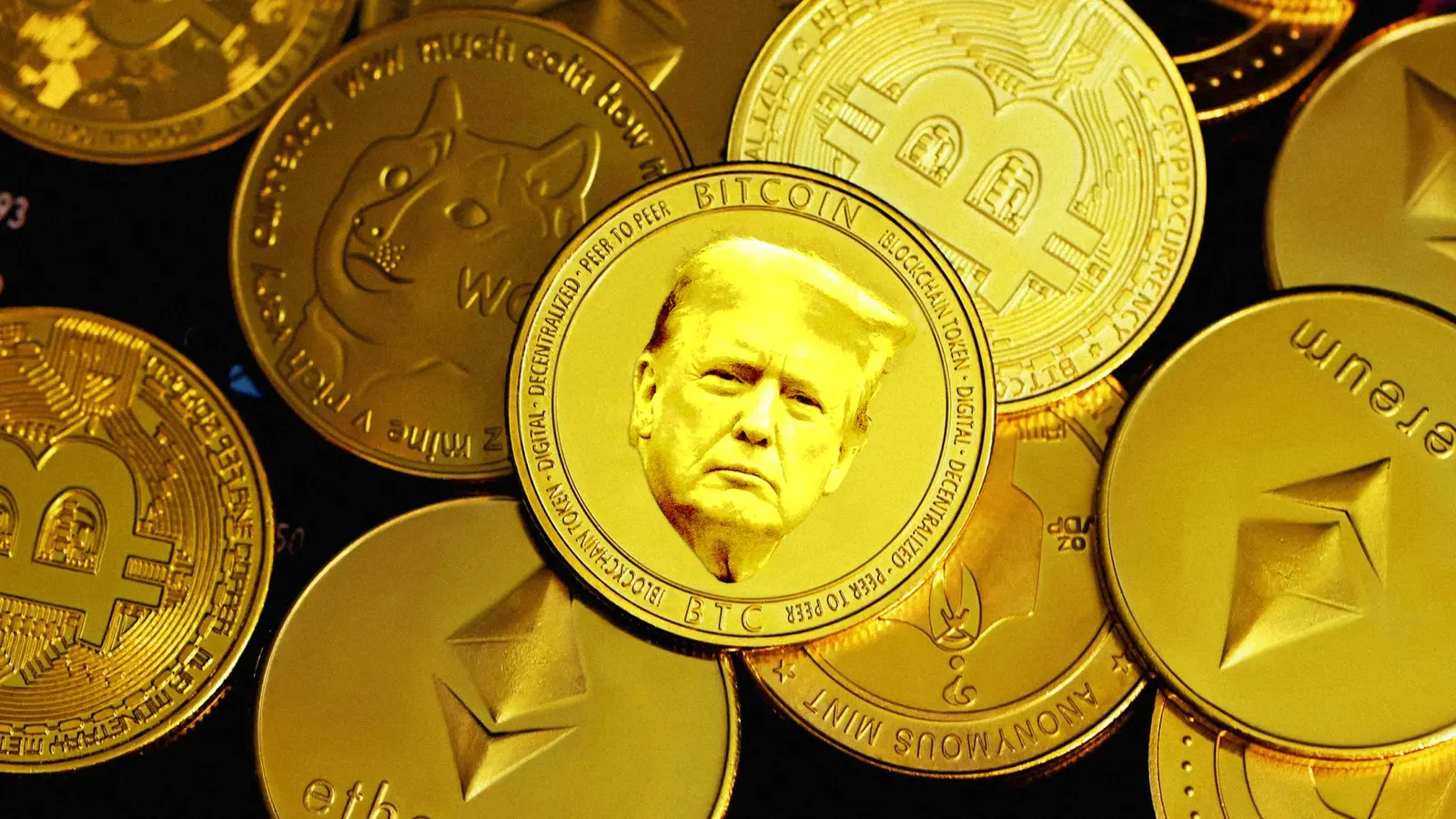9 Minutes
Overview: A pattern of high-profile crypto clemency
Since returning to the White House, President Donald Trump has issued clemency to a growing roster of convicted figures from the cryptocurrency industry. These pardons span a range of cases — from the founder of the Silk Road marketplace to senior exchange executives — and have reignited debates about ethics, corruption, and the future of crypto regulation in the United States. For lawmakers, prosecutors, and market participants, the wave of executive leniency raises pressing questions about accountability, anti-money laundering enforcement, and potential conflicts of interest between the administration and the crypto sector.
Notable pardons and the cases behind them
Ken Kurson: political ties and controversy
Ken Kurson, identified as a Ripple board member and co-founder of crypto media outlet Modern Consensus, received a pardon on Jan. 20, 2021. Kurson had been convicted of cyberstalking his ex-wife, a case that drew scrutiny because of his connections to Trump associates. The original content includes the following image and caption, which are preserved here exactly as they appeared in source material:
Ken Kurson, Ripple board member, Modern Consensus co-founder Pardoned Jan. 20, 2021

Ken Kurson (left) with Jared Kushner. Source: Anders
The White House pardon messaging emphasized statements from Kurson's ex-wife minimizing the case and suggested his prosecution was politically motivated after he was nominated to a federal position. Critics disagreed, pointing to the severity of harassment claims and the broader optics of pardoning a politically connected figure with ties to the president's inner circle.
Ross Ulbricht: the Silk Road founder
Ross Ulbricht, the creator of the Silk Road darknet marketplace that used Bitcoin as a primary payment rail, was pardoned on Jan. 21, 2025 after serving 11 years of a life sentence. Activists and criminal justice reform advocates long argued that Ulbricht's life term under the kingpin sentencing clause was disproportionate. Libertarian and crypto communities also lobbied for clemency, framing Ulbricht as an early adopter of cryptocurrency payments rather than a uniquely malignant criminal.

Ross Ulbricht leaving prison.
Supporters on release contributed donations, including cryptocurrency, to help him reestablish his life outside incarceration. The Ulbricht pardon fueled debate over whether the justice system properly calibrates sentencing for darknet activity facilitated by crypto payments and whether clemency should be used to correct perceived sentencing excesses.
The BitMEX executives: AML failures and the Bank Secrecy Act
In March 2025, four former executives of BitMEX — Arthur Hayes, Benjamin Delo, Gregory Dwyer, and Samuel Reed — were issued pardons. Their convictions stemmed from violations of the Bank Secrecy Act and failures to maintain adequate anti-money laundering (AML) compliance at the derivatives exchange.
Hayes and Delo had pled guilty to willfully failing to implement an AML program, with Delo receiving a substantial prison term while others accepted probation and fines. The exchange itself paid a large civil penalty. The pardons removed criminal sanctions from individuals who had been central to a landmark enforcement action in the crypto industry, raising concerns about deterrence and the future vigor of AML enforcement.
Changpeng Zhao (CZ): the Binance co-founder
Changpeng Zhao, known as CZ and co-founder of Binance, was granted a presidential pardon on Oct. 23, 2025 for charges tied to inadequate anti-money laundering controls at Binance. Zhao had already served a four-month sentence in 2024 after Binance pleaded guilty to money laundering violations and paying more than $4.3 billion in fines related to sanctions evasion and AML lapses.
White House officials framed the action as a correction of what they called overreach by the prior administration, while some ethics observers flagged potential conflicts: reporting indicates Binance had ties to Trump-affiliated projects and had enlisted Trump-associated legal counsel to pursue clemency. CZ publicly expressed gratitude after the pardon, but critics worry that pardons for executives tied to large-scale enforcement settlements could undercut the message that robust compliance matters.
Why these pardons matter for crypto policy and enforcement
Undermining AML enforcement and regulatory deterrence
One of the clearest implications of pardoning executives convicted for AML failures is the potential erosion of enforcement as a deterrent. U.S. authorities have used criminal charges and hefty civil fines to compel exchanges and key personnel to invest in compliance programs. When high-level convictions are later wiped clean, market participants may question the consistency of consequences for systemic failings that enable money laundering, sanctions evasion, or other illicit finance activity.
This inconsistency could slow the development of robust compliance standards across global exchanges, hamper cooperation between U.S. regulators and foreign counterparts, and complicate efforts to integrate crypto into mainstream financial markets in a way that satisfies policymakers.
Perception of political favoritism and conflicts of interest
Ethics watchdogs are alarmed not only because of the specific pardons but also due to the optics of selective clemency. Several pardoned individuals had connections to Trump-aligned projects or were represented by lawyers with ties to the administration. That has fueled accusations that pardons serve political ends or are influenced by campaign donations, business relationships, or lobbying.
As noted by legal and ethics experts, when clemency appears to correlate with personal or financial interests, it creates corrosive public perceptions about justice being for sale. This perception can depress trust in institutions that are already under heavy scrutiny for their handling of novel technologies such as blockchain and cryptocurrencies.
Who hasn’t been pardoned: selective enforcement still exists
Not every high-profile crypto defendant has received clemency. Alex Mashinsky, former CEO of Celsius, was sentenced to 12 years in prison for fraud after his lending platform collapsed. Prosecutors emphasized the severity of the misconduct and the need for deterrence. Jay Clayton, who led the prosecution and was originally nominated to the SEC under Trump, stated that tough sentences serve as a warning that fraud will be punished across industries, crypto included.
The disparate outcomes — tough sentences in some cases and full pardons in others — reflect a fragmented landscape of enforcement and executive discretion that market participants, compliance officers, and policy designers must navigate.
Executives still seeking clemency
Public appeals for pardons have continued. Sam Bankman-Fried, now serving a 25-year sentence after his conviction in the collapse of FTX, has reportedly sought a pardon, with family members and advisors attempting to present his case to political allies. Early Bitcoin proponent Roger Ver, who faced extradition and tax evasion claims, publicly compared his prosecution to 'lawfare' and sought political relief. Anatoly Legkodymov, co-founder of Bitzlato, also sought leniency after pleading guilty to processing large volumes of illicit funds.
Whether these appeals succeed is uncertain, but their existence demonstrates how clemency has become a strategic option in high-stakes crypto litigation.
Reactions from markets, regulators, and the crypto community
Market reaction to pardons has been mixed. Some investors and industry figures welcomed the removal of criminal stigma for prominent leaders, seeing it as a potential opening for more favorable policy and investment. Others warn that pardons erode legal clarity and make regulatory decisions more unpredictable.
Regulators and prosecutors have variously expressed concern that clemency can complicate ongoing enforcement priorities and international cooperation. Global partners may be skeptical of U.S. commitments to AML and sanctions enforcement when high-profile penalties are later undone by executive action.
Policy implications and the path forward
The spate of pardons presents an urgent policy question: how can the U.S. maintain the rule of law and consistent enforcement while allowing the president constitutional clemency powers? Possible responses include stronger transparency around clemency decisions, stricter ethical rules or disclosures regarding lobbying and donations tied to clemency petitions, and legislative clarification of the interplay between executive clemency and ongoing regulatory settlements.
For crypto businesses, the practical takeaways are to continue investing in compliance and governance to withstand enforcement scrutiny, while recognizing that political risk is increasingly part of the regulatory environment.
Conclusion: clemency, credibility, and crypto’s regulatory future
Trump’s pattern of pardoning several high-profile crypto figures has reignited debates over ethics, corruption, and the stability of enforcement in the cryptocurrency space. While some pardons address genuine claims of disproportionate sentences, others raise legitimate concerns about favoritism and the undermining of important AML deterrents. As crypto becomes more central to mainstream finance and national security conversations, consistent and transparent approaches to enforcement and executive power will be critical to preserving market integrity and public trust.
As the interplay between politics, enforcement, and crypto continues to evolve, observers should expect additional legal maneuvering, public advocacy for clemency, and ongoing debate over how best to balance innovation with accountability in a rapidly changing sector.
Source: cointelegraph
Comments
deepmotor
quick comment: pardoning Binance folks really chips away at deterrence. selective pardons = mixed signals to regulators and foreign partners. messy
Reza
Wow didnt expect Ross Ulbricht freed... conflicting emotions. Part of me cheers, part of me worries about precedent. politics muddying justice
coinpilot
Wait so big AML convictions just get wiped? Is this even true, or some backroom deal? feels like accountability is optional now lol


Leave a Comment